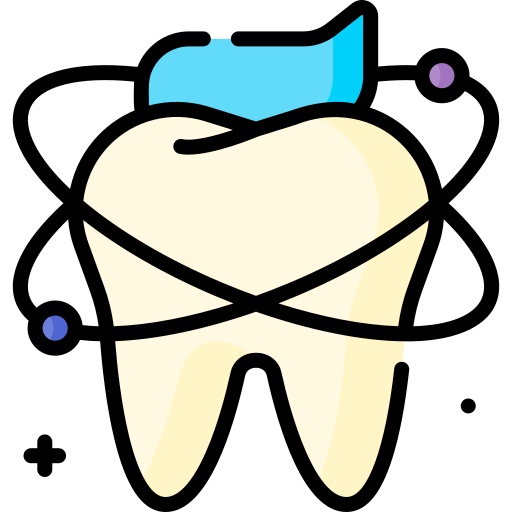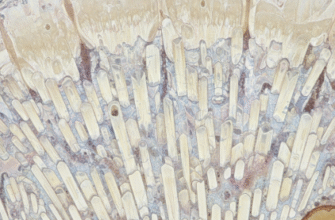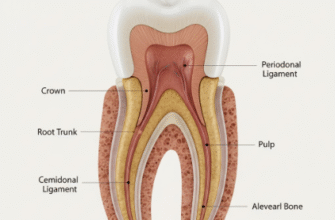The gleaming promise of a brighter smile has led many down the path of trendy dental solutions, and few have captured the public’s imagination quite like activated charcoal toothpaste. Splashed across social media feeds, often accompanied by dazzling before-and-after shots, these inky black pastes have become synonymous with natural teeth whitening for a significant number of people. The narrative is compelling: a natural ingredient that detoxifies and polishes your teeth to perfection. But buried beneath this glossy veneer of wellness is a grittier reality, one that challenges the pervasive myth that activated charcoal is a safe, or even beneficial, daily tooth cleanser.
The Dark Allure: Why Charcoal Captivated Us
It’s easy to understand the appeal. Activated charcoal itself has a long history of use as a potent absorbent, famously employed in medical settings to treat certain types of poisoning. This association with “detoxification” and “purity” has been cleverly leveraged by marketers. The visual is also undeniably striking – the stark contrast of black paste against teeth, followed by the perceived reveal of a whiter smile, makes for compelling social media content. Furthermore, the “natural” label resonates with a growing consumer desire for products perceived as free from harsh chemicals. People are increasingly wary of complex ingredient lists and are drawn to simpler, earth-derived solutions. The idea that something as basic as charcoal could unlock a celebrity-worthy smile without resorting to “chemicals” is a powerful draw. This created a perfect storm for activated charcoal to rise as a dental care superstar, at least in the popular imagination.
Understanding Activated Charcoal: More Than Just Burnt Wood
Before we delve into its effects on teeth, it’s crucial to understand what activated charcoal actually is. It’s not the same stuff you find in your barbecue briquettes. Activated charcoal is typically made from wood, coconut shells, or other organic materials that are heated to very high temperatures in the absence of oxygen to create charcoal. This charcoal is then “activated” through a process that erodes its internal surfaces, creating a vast network of tiny pores. This porous structure gives activated charcoal an incredibly large surface area, which is what allows it to adsorb (not absorb, a key difference) various substances. Think of it like a microscopic sponge with countless nooks and crannies where particles can get trapped. While this property is fantastic for trapping certain toxins in a medical emergency, its application as a daily tooth cleanser requires a much closer, more critical look.
The Gritty Truth: Why Daily Charcoal Brushing is a Concern
The very property that makes activated charcoal a good adsorbent – its particulate, porous nature – is what raises significant concerns when it’s applied to teeth daily. The primary issue is its abrasiveness.
Imagine trying to polish a delicate piece of jewelry with fine sandpaper. Initially, it might remove some tarnish and make it look shinier, but with repeated use, you’d start to wear away the surface of the jewelry itself. Tooth enamel, the hard, protective outer layer of your teeth, is incredibly strong, but it’s not invincible. Consistent scrubbing with an abrasive substance like charcoal particles can gradually wear down this precious layer.
Enamel Erosion: A Silent Threat
Enamel is your tooth’s first line of defense against decay and sensitivity. Unlike bone or skin, enamel does not regenerate. Once it’s gone, it’s gone for good. The abrasive particles in many charcoal toothpastes can contribute to enamel erosion over time. This might not be noticeable immediately, but the cumulative effect of daily use can be detrimental. As enamel thins, several problems can arise. Firstly, the underlying layer, called dentin, becomes more exposed. Dentin is naturally yellower than enamel, so ironically, excessive use of an abrasive “whitening” product could eventually make your teeth appear more yellow, not less.
The Sting of Sensitivity
Another common consequence of enamel erosion is increased tooth sensitivity. Dentin contains microscopic tubules that lead directly to the tooth’s nerve. When enamel wears away, these tubules become more exposed to external stimuli like hot, cold, sweet, or acidic foods and drinks. This can lead to sharp, sudden pain, making everyday eating and drinking uncomfortable. What started as a quest for a brighter smile can unfortunately end with a wince every time you enjoy an ice cream or a hot cup of tea.
The Fluoride Factor: A Missing Link in Protection
A vast majority of activated charcoal toothpastes on the market do not contain fluoride. Fluoride is a mineral that has been extensively researched and proven to strengthen enamel and help prevent tooth decay. It works by promoting remineralization (the repair of enamel) and making teeth more resistant to acid attacks from bacteria and sugary foods. By opting for a fluoride-free charcoal toothpaste for daily use, individuals miss out on this crucial protective benefit, potentially increasing their risk of cavities. While some people seek fluoride-free options for various personal reasons, it’s important to understand the well-documented dental health benefits that are being forgone, especially if the alternative is also abrasive.
Important Consideration: The abrasive nature of many activated charcoal dental products is a primary concern for dental professionals. While it might remove some surface stains initially, this often comes at the cost of enamel wear. This erosion is irreversible and can lead to long-term problems such as tooth sensitivity and an increased risk of decay. It’s always best to discuss new oral hygiene products with your dentist.
Questionable Whitening and Other Potential Downsides
While activated charcoal can remove some extrinsic (surface) stains due to its mild abrasiveness, its ability to intrinsically whiten teeth (change their natural, underlying shade) is highly questionable and not supported by robust scientific evidence for long-term, safe efficacy. Most of the “whitening” effect is simply the scrubbing away of superficial discoloration from things like coffee, tea, or red wine. However, this can be achieved with less abrasive, conventional whitening toothpastes that also offer the benefits of fluoride.
There are other potential, albeit less discussed, downsides. The fine black particles can sometimes get lodged in gum pockets, potentially causing irritation or inflammation. For individuals with existing dental work like crowns, veneers, or fillings, especially older ones with slightly rougher margins, charcoal particles might accumulate around these restorations or even cause microscopic scratches, potentially leading to staining or making them more prone to future discoloration. The long-term effects of inhaling small amounts of charcoal dust during brushing are also not thoroughly studied, though this is likely a minor concern for most.
Furthermore, the claims of “detoxifying” the mouth are largely unsubstantiated in a dental context. The mouth has its own complex microbiome, and the idea that charcoal can selectively remove “toxins” without disrupting this balance or providing a tangible health benefit beyond stain removal is not well-supported by dental science.
What Do Dental Professionals Generally Advise?
Most dental associations and professionals express caution regarding the daily use of activated charcoal toothpaste. The primary concerns revolve around its abrasiveness, the lack of fluoride in many formulations, and the insufficient scientific evidence to support its safety and efficacy for long-term daily use as a primary tooth cleanser. While occasional use might be less harmful for some individuals with healthy, robust enamel, making it a daily habit is generally not recommended. The consensus leans towards sticking with proven, less abrasive methods for maintaining oral hygiene and achieving a brighter smile.
Safer Avenues to a Healthy and Bright Smile
Fortunately, there are many well-established and safer ways to keep your teeth clean, healthy, and looking their best, without resorting to potentially damaging fads.
The Tried and True: Brushing and Flossing
The cornerstone of good oral hygiene remains unchanged:
- Brush twice a day: Use a soft-bristled toothbrush and a fluoride toothpaste. Focus on gentle, circular motions, ensuring you clean all surfaces of each tooth. Aggressive scrubbing, even with regular toothpaste, can be harmful.
- Floss daily: Flossing removes plaque and food particles from between teeth and under the gumline, areas your toothbrush can’t reach. This is crucial for preventing cavities and gum disease.
Regular Dental Check-ups and Cleanings
Visiting your dentist and dental hygienist regularly (typically every six months, or as advised) is vital. Professional cleanings remove hardened plaque (tartar) that regular brushing and flossing can’t eliminate. Dentists can also identify any early signs of problems, including enamel erosion or cavities, and provide personalized advice on maintaining your oral health.
Considering Professional Whitening Options
If you’re specifically concerned about the color of your teeth, discuss whitening options with your dentist. They can assess your suitability for whitening and recommend safe and effective professional treatments, or advise on over-the-counter products that have demonstrated safety and efficacy, often bearing a seal of approval from a recognized dental association. These methods are typically much more effective and controlled than relying on abrasive charcoal products.
Many standard whitening toothpastes available over the counter contain mild abrasives and chemical agents that are proven to remove surface stains effectively without the same level of risk associated with charcoal. Look for products with recognized dental association approval for added assurance.
Rethinking the Black Paste: A Final Word
The allure of a quick, natural fix for whiter teeth is strong, but when it comes to activated charcoal as a daily tooth cleanser, the prevailing myth of its safety and superior efficacy crumbles under scrutiny. The potential for irreversible enamel abrasion, increased sensitivity, and the lack of fluoride’s protective benefits far outweigh any superficial, temporary stain removal it might offer. Your enamel is precious and irreplaceable.
Instead of chasing trends that could compromise your long-term dental health, it’s wiser to rely on evidence-based oral hygiene practices and seek professional guidance. A healthy smile is built on consistent, gentle care with proven products, not on abrasive shortcuts. So, before you reach for that tube of black toothpaste for your daily routine, remember the potential hidden costs to your pearly whites and consider the well-established, safer alternatives.








